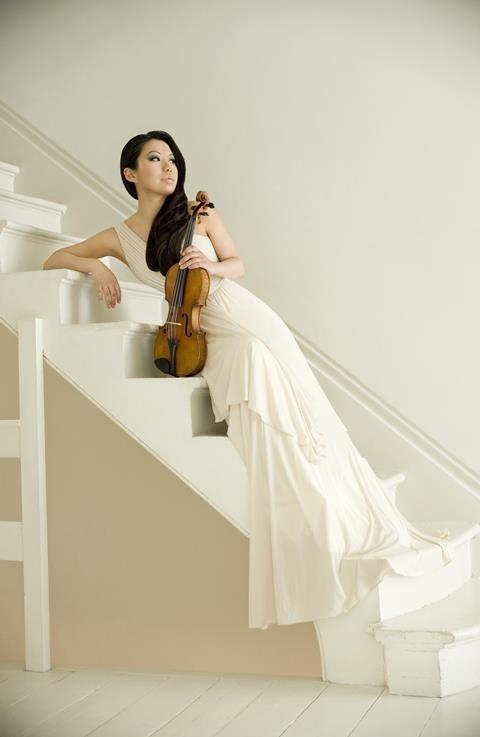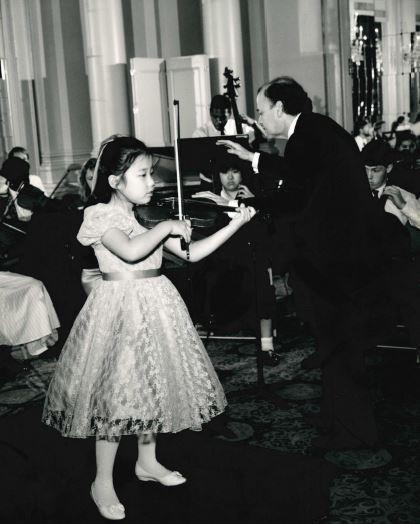The US violinist reflects on the lessons learnt from her unique upbringing

Discover more Featured Stories like this in The Strad Playing Hub.
Read more premium content for subscribers here
Technically, my first teacher was my dad. But as any child taught by their parents will know, it can result in World War III! So when I was six, we began travelling to New York from Philadelphia twice a week for lessons with Dorothy DeLay at Juilliard. If you think of the most encouraging yet strict teacher, that was Miss DeLay. She had the perfect combination of sweetness while demanding excellence and instilling an amazing work ethic. It was only later that I appreciated how tailored her approach was to each student. I remember when I was about 13 and she could no longer travel with me owing to illness, she began telling me: ‘Learn how to listen to yourself, because you’re going to be on the road for the rest of your life.’ At the time I thought I was too young to hear that, but it turned out to be invaluable advice.
I started touring professionally when I was eight. From remote schooling on planes to child services monitoring my rehearsals and concerts, I knew it wasn’t a ‘normal’ life, but it was my normal. I am particularly grateful to my agent Lee Lamont, who was the quintessential protective manager. When I was making the transition from high school to college, she would meet with all the university presidents and deans for me to ensure my studies would work around my schedule. I am also very grateful to other musicians, such as Midori, who experienced the same crazy life of a ‘child prodigy’. Her advice and friendship are things I will never take for granted.
It isn’t about the quantity of concerts but the quality
My time at Juilliard was marked by amazing camaraderie, especially among Miss DeLay’s other students. I still see so many of them today. And no matter how many concerts I’ve done in my life, it is always the special projects with dear friends and colleagues that remind me why I do what I do. It really isn’t about the quantity of concerts but the quality.

I wish I had been told at a younger age how much of a business this industry is. Unfortunately it isn’t only about making music. I remember being so confused as a child about why we had four different lawyers in a room talking about everything from copyright to trusts and estates! That said, there have been very positive shifts in this respect, particularly with the demand for outreach. It’s beautiful to see the efforts of musicians to ensure an appreciation of classical music in the next generation.
My advice for young musicians would just be to enjoy the moment before this art becomes a ‘job’ (and I hate to use that word!). It goes by very quickly. Enjoy the fact that you’re making music with colleagues and friends, and savour every moment you get to do that before the real world hits!
INTERVIEW BY RITA FERNANDES
Watch: Earliest video of Sarah Chang
Read: Sarah Chang on the limitations of the concerto circuit
Discover more Featured Stories like this in The Strad Playing Hub.
Read more premium content for subscribers here
The number one source for playing and teaching books, guides, CDs, calendars and back issues of the magazine.
In The Best of Technique you’ll discover the top playing tips of the world’s leading string players and teachers. It’s packed full of exercises for students, plus examples from the standard repertoire to show you how to integrate the technique into your playing.
The Strad’s Masterclass series brings together the finest string players with some of the greatest string works ever written. Always one of our most popular sections, Masterclass has been an invaluable aid to aspiring soloists, chamber musicians and string teachers since the 1990s.
American collector David L. Fulton amassed one of the 20th century’s finest collections of stringed instruments. This year’s calendar pays tribute to some of these priceless treasures, including Yehudi Menuhin’s celebrated ‘Lord Wilton’ Guarneri, the Carlo Bergonzi once played by Fritz Kreisler, and four instruments by Antonio Stradivari.













































No comments yet